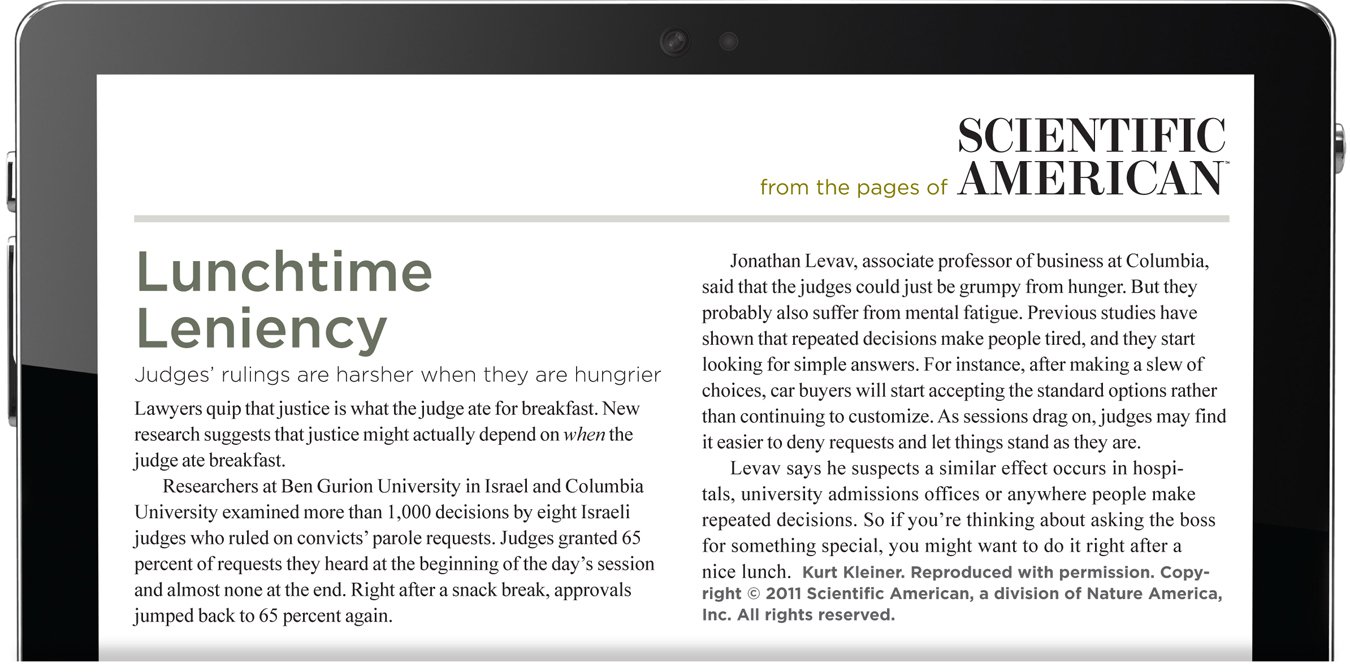Chapter 1. Chapter
Article
From the Pages of Scientific American
Lunchtime Leniency

Click the image to enlarge. Click "Next" to continue.
1.1 Quiz
1. Levav believes that the negative responses of judges to parole requests is probably due to more than grumpiness arising from hunger. He believes that ____________ may be present and influencing the judges’ decisions.
| A. |
| B. |
| C. |
| D. |
2. Previous research on the exhaustion associated with repeated decision making has indicated that ____________ tend(s) to be the result.
| A. |
| B. |
| C. |
| D. |
3. Which part of the brain’s limbic system is associated with the hunger that the judges in Levav and colleagues’ study feel?
| A. |
| B. |
| C. |
| D. |
4. One might look at the judges in Levav and colleagues’ study and argue that the lower number of paroles granted later in the day is the result of the judges trying to deal with a drive for food arising from their basic physiology. This argument is most consistent with:
| A. |
| B. |
| C. |
| D. |
5. What type of work situation does Levav find particularly problematic as regards his “lunchtime leniency” study?
| A. |
| B. |
| C. |
| D. |